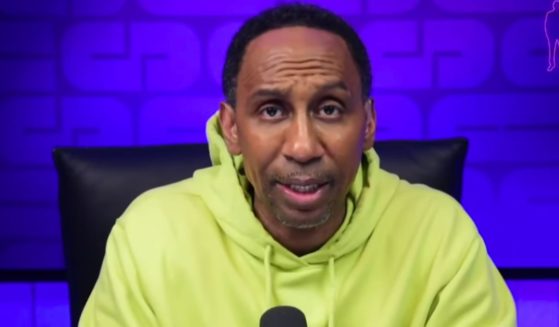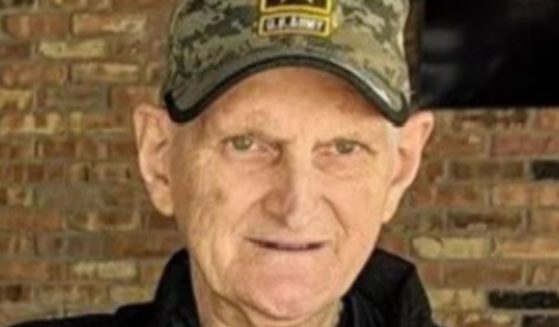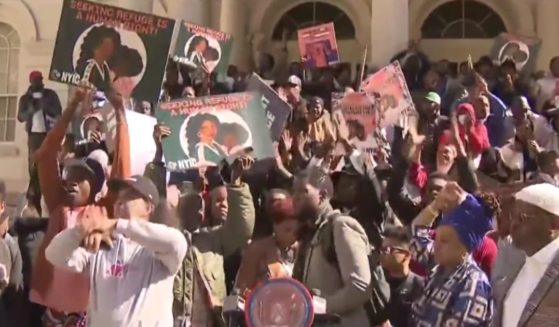Watch GA Election Official Hit Cuomo with the Facts After Pathetic Voter Suppression Claim
We’ve been over this before, haven’t we?
When Democrat Stacey Abrams lost the governor’s race in Georgia in 2018 to Republican Brian Kemp, Democrats were quick to jump on a claim that the win was achieved through voter suppression — mostly via a law that purged inactive voters from the rolls. That Kemp is an illegitimate governor continues to be a matter of Democrat gospel, but the theory has been substantially debunked.
There haven’t been any elections to complain about in the intervening period, but it’s now 2020 and the claims can begin afresh, starting with the massively long lines voters saw last week during the state’s primary election.
There was plenty of blame to be apportioned for the fact voters waited hours to cast their ballots during a bungled primary Tuesday. A lot of the media coverage focused on flaws in a new computerized voting system, untrained new poll workers and a host of concerns related to the coronavirus pandemic.
Not Chris Cuomo, though. To the combative CNN host, the real culprit was — you guessed it — voter fraud.
A segment of Wednesday’s “Cuomo Prime Time” was, quite predictably, a cudgel directed at President Trump’s skull. Equally predictably, it had to do with the concerns over mail-in voting.
Never mind that Georgia had encouraged people to vote by mail. (There were flaws in that, too, as the state had difficulty getting ballots out to some voters, according to the U.K. Guardian, so apparently that foolproof system isn’t as airtight as we’ve been sold.)
“Here is the tragedy of the travesty that the president has created on this issue — we have real voter suppression concerns. One is playing out now,” Cuomo said, showing the long lines in Georgia as “proof.”
“This is the only type of widespread voter fraud we will ever see,” Cuomo said.
Cuomo then brought on a Georgia election official to upbraid him on the issue, as is his wont. Gabriel Sterling, the Peach State’s voting implementation manager, was brought on to explain how this was different from 2018 when, as Cuomo put it, “87,000 people [were] prevented from voting, a disproportionate number were people of color, young voters, groups typically favoring Democrats” and how the fact that “Georgia has closed five percent of polling places since the Supreme Court invalidated the Voter Rights Act, most of those are in black and brown communities” didn’t constitute voter suppression.
One problem with Cuomo’s question, as Sterling pointed out, is that when you don’t have venues willing to act as polling places, you’re going to have trouble finding places for votes to be cast. Schools were closed for summer and many VFWs and churches weren’t willing to host large numbers of people under the circumstances. This was compounded by mistakes at the county level, since counties run their own elections
“In Fulton County, specifically, they lost 40 locations and collapsed many of those locations into mega precincts, which saw a lot of those amazingly long lines,” Sterling said, saying the state had advised against this and told Fulton County officials to find other polling places.
Fulton County, for the unfamiliar, is home to Atlanta. While not the most liberal of America’s major cities, it’s still not a hotbed of conservatism. It’s also subject to the “new normal” of COVID-19. (Of course, the Cuomo-Sterling interview took place before Friday night’s police shooting in Atlanta.)
Sterling mentioned a library that had 15 of the new voting machines sent to it — but only four could be used because of “social distancing” rules. Across the state, the average age of poll workers was over 70, many of whom did not want to participate this year because COVID-19 is a particular threat to the elderly. This meant training new workers, a difficult task when you consider 10 or more people can’t meet in the same place.
And then there was the matter of the new voting machine system, a rollout that has been difficult and was compounded by the lack of training for new poll workers.
According to The Atlanta Journal-Constitution, the situation was so dire that some poll workers didn’t even know how to plug in the four component parts of the machine — tablet computer, touchscreen, printer and scanner — into the correct power supplies.
Sterling had already said misunderstandings of how the new system worked were at the heart of the problems: “So far we have no reports of any actual equipment issues,” he’d told WXFG-TV in an interview Tuesday. “We do have reports of equipment being delivered to the wrong locations and delivered late. We have reports of poll workers not understanding setup or how to operate voting equipment.”
And this wasn’t on the state. Again, he said this was “a function of counties engaging in poor planning, limited training, and failures of leadership.”
And again: There were other options.
“We had two weeks of early voting and presidential preference primary voting. And when we merged those two together, we launched the largest mail-in program ever in the history of the state of Georgia,” Sterling told Cuomo. “Over a million voters taking advantage of it. It’s blown away the record turnouts we’ve seen.
“As of today, before we voted today, we already had record turnout for a general primary. Never happened before. Over 1,300,000 people. We have three weeks of early voting, including a mandatory Saturday, of 325,000 people took advantage of. That was a record. We anticipate a record turnout today, which is part of the reason we saw long lines. And the main things we saw had nothing to do with equipment, but had to do with poll worker training, because they couldn’t do as much of it. And logistical issues with the counties.”
But the blame always comes back to the state, at least for Cuomo and the left.
“Isn’t that still on you? I mean, these are your people, this is your planning and, you know, it’s an interesting argument you make that you have huge turnout, Gabe,” Cuomo said.
Sterling laid out how he said the state would deal with this — which wasn’t particularly interesting to Cuomo, who brought it back to 2018 and the Georgia voter suppression claims.
Except it isn’t about that. It isn’t even apples and oranges at this point, it’s apples and rocks. The conjoining element is that both were elections. In 2018, there was no pandemic, no shortage of poll workers or polling locations, no new computer system or poll workers, no “new normal,” nothing like that.
And it wasn’t that there weren’t other options, including mail-in voting — although, as the Georgia problems proved, those options weren’t necessarily foolproof or taken advantage of.
One voter, who reportedly waited from 7:30 a.m. to noon to get into the polling place, told the U.K. Guardian this about the mail-in ballot: “I requested it. I received it, but I don’t trust anybody … I don’t trust them to count it.”
While perhaps not a representative sample, this is indicative of the fact that low trust, on top of the possibility for glitches, means that mail-in voting is hardly the cure-all for pandemic-related voting issues.
In the end, though, this is going to be the storyline: Everything voting-related that the Republicans do or that happens in Republican-controlled states will be considered racist. Cuomo was hardly the only one delivering evidence-challenged jeremiads about the racial inequities of voting-machine issues, county mismanagement and problems related to the coronavirus. When even LeBron James is tweeting about it, you know the narrative has broken big:
Everyone talking about “how do we fix this?” They say “go out and vote?” What about asking if how we vote is also structurally racist? https://t.co/GFtq12eKKt
— LeBron James (@KingJames) June 9, 2020
When Democrat-run counties run their own elections and run them poorly, this isn’t “structurally racist,” though. When Cuomo told Sterling that “it seems convenient, if you’re going to be not able to handle the demand, it’s nice that you do it in places that tend to vote Democrat,” Sterling countered with the obvious:
“In those counties where people tend to vote Democrats, are run by Democrats, and they’re the ones that set the elections boards, they’re the ones who hire the staff,” he said.
It’s a poorly run election. Whatever form November’s vote takes, one hopes scenes like this don’t repeat themselves, either in Georgia or elsewhere — but if and when they do, blaming the issue on deliberate voter suppression requires evidence, not innuendo.
Truth and Accuracy
We are committed to truth and accuracy in all of our journalism. Read our editorial standards.












